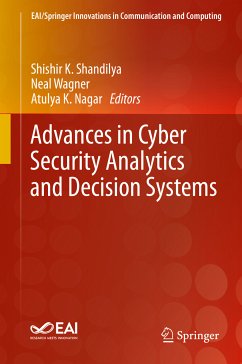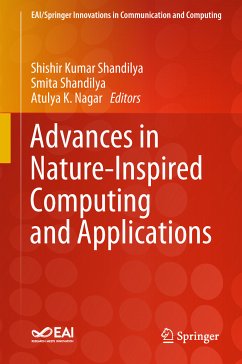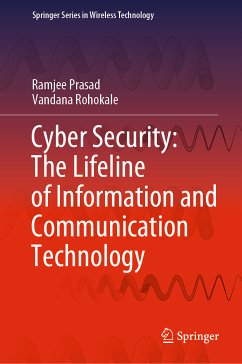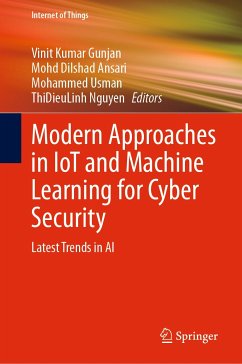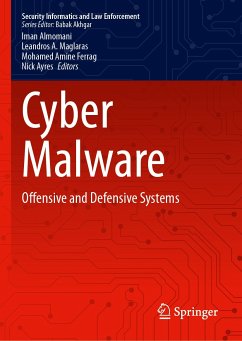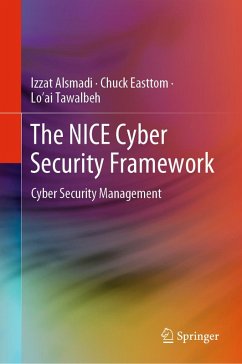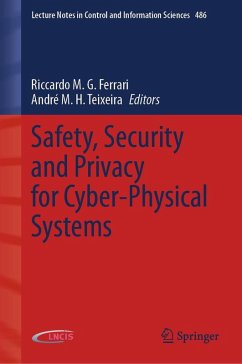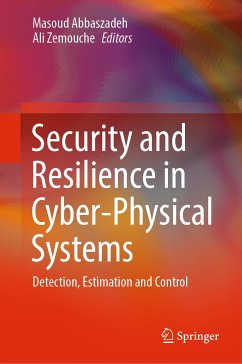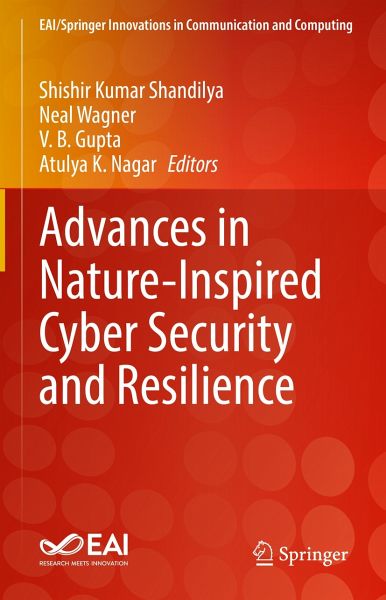
eBook, PDF
Advances in Nature-Inspired Cyber Security and Resilience (eBook, PDF)

PAYBACK Punkte
36 °P sammeln!





Dieser Download kann aus rechtlichen Gründen nur mit Rechnungsadresse in A, B, BG, CY, CZ, D, DK, EW, E, FIN, F, GR, HR, H, IRL, I, LT, L, LR, M, NL, PL, P, R, S, SLO, SK ausgeliefert werden.
Dr. Shishir Kumar Shandilya is the Deputy Director of SECURE - Centre of Excellence in Cyber Security and Division Head of Cyber Security and Digital Forensics at VIT Bhopal University. He is working as a Principal Consultant to the Govt. of India for Technology Development and Assessment in Cyber Security. He also holds the position of Executive Director of National Cyber Defense Research Centre, New Delhi. He is a Visiting Researcher at Liverpool Hope University-United Kingdom, a Cambridge University Certified Professional Teacher and Trainer, ACM Distinguished Speaker and a Senior Member of IEEE. He is a NASSCOM Certified Master Trainer for Security Analyst SOC (SSC/Q0909: NVEQF Level 7) and an Academic Advisor to National Cyber Safety and Security Standards, New Delhi. He has received the IDA Teaching Excellence Award for distinctive use of technology in Teaching by Indian Didactics Association, Bangalore (2016) and Young Scientist Award for two consecutive years, 2005 and 2006, by Indian Science Congress and MP Council of Science and Technology. He has seven books published by Springer Nature-Singapore, IGI-USA, River-Denmark and Prentice Hall of India. His recently published book is on Advances in Cyber Security Analytics and Decision Systems by Springer. Dr. Neal Wagner is a Complex Systems Scientist, Analysis and Decision Systems Group, Systems and Technology Research, USA. Before this, he was technical staff member in the Cyber Analytics and Decision Systems Group at MIT Lincoln Laboratory. His focus lies in developing problem-solving methods, tools, and techniques that combine computational intelligence and modeling and simulation to create automated/semi-automated cyber decision-making systems. Prior to joining Lincoln Laboratory in 2013, he was at SolveIT Software, where he specialized in the commercialization of bio-inspired computing techniques for supply chain optimization of large organizations. His academic experience includes stints as a faculty member of the Computer Science and Information Systems Departments at Augusta University and Fayetteville State University. Dr. Wagner holds a BA degree in mathematics from the University of North Carolina at Asheville and an MS degree in computer science and a PhD degree in information technology, both from the University of North Carolina at Charlotte. Prof. VB Gupta is Professor and Head, School of Data Science and Forecasting at Devi Ahilya University, Indore, India. His research interests are Mathematical Modelling, Simulation, Systems Engineering, and Data Science. Prof. Atulya K. Nagar is Pro-Vice Chancellor (Research) and Professor of Mathematical Sciences and Computer Sciences at Liverpool Hope University, UK. He is also the Dean of Science and the Foundation Professor of Computer and Mathematical Sciences at Liverpool Hope University. He is also Head of Department of Computer Science Department. A mathematician by training, Prof. Nagar brings multi-disciplinary expertise in computational science, bioinformatics, operations research, and systems engineering to the Faculty of Business & Computer Sciences. He received a prestigious Commonwealth Fellowship for pursuing his Doctorate in applied non-linear mathematics, which he received from the University of York in 1996. Prof. Nagar is an internationally recognized scholar working at the cutting edge of theoretical computer science, applied mathematical analysis, operations research, and industrial systems engineering. The center of his research expertise lies in his IDS group, which pursues strategic and applied research into advancing applications of engineering, computational and biological systems. The research of the group seeks to contribute to the general body of knowledge and to influence IT practice in systems modelling and planning, scheduling, optimization, and informatics. One such innovative theme is DNA sequence analysis using sophisticated computational techniques. The work of the group is highly theoretical, and primarily benefits the scientific community, with demonstrable potential for practical applications and relevance to society as a whole. Prof. Nagar has published a substantial number of research papers in reputed outlets such as the IEE and IEEE publications. He has co-edited a volume on Intelligent Systems area and serves on editorial boards for a number of prestigious journals including the International Journal of Artificial Intelligence and Soft Computing, and the Journal of Universal Computer Science.
Produktdetails
- Verlag: Springer Nature Switzerland
- Seitenzahl: 187
- Erscheinungstermin: 26. April 2022
- Englisch
- ISBN-13: 9783030907082
- Artikelnr.: 63907365
Für dieses Produkt wurde noch keine Bewertung abgegeben. Wir würden uns sehr freuen, wenn du die erste Bewertung schreibst!
Eine Bewertung schreiben
Eine Bewertung schreiben
Andere Kunden interessierten sich für


